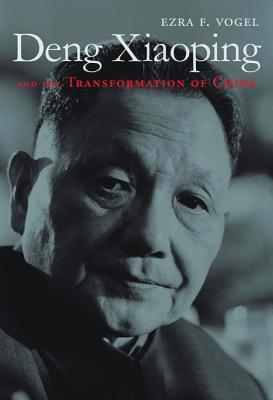More on this book
Community
Kindle Notes & Highlights
He realized what some free-market economists did not, that one could not solve problems simply by opening markets; one had to build institutions gradually.
Deng's effort to dodge the issue did not satisfy Mao, who wanted a clear affirmation of the Cultural Revolution. Mao and Deng had reached an impasse.
When he met Ford, Mao acknowledged that China had little weaponry to fight the Soviet Union, only empty cannons, but he confessed: “With regard to cursing, we have some ability.”
Hua also sent delegation after delegation abroad to learn about modern technology. He—not Deng—launched China's special economic zones, which experimented with efforts to bring in foreign direct investment.
Deng declared that the theory of collective responsibility had meant, in practice, “that no one is responsible.”
As one provincial first party secretary later said, Deng's view of democracy was like Lord Ye's view of dragons. “Lord Ye loved looking at a book with pretty pictures of dragons (Yegong haolong), but when a real dragon appeared, he was terrified.”
Kim Il Sung undertook “invitation diplomacy,” informing the heads of third-world countries scheduled to visit China that they would also be welcome to visit North Korea. In 1977 only four high-level visitors accepted Kim's invitation: Ye Jianying, representing China, and representatives from East Germany, Yugoslavia, and Cambodia.36 Kim received them royally.
Malaysia proved to be a far greater challenge to Deng than Thailand. Malaysian leaders did have concerns about Vietnamese and Soviet aims in the region, but they were even more worried about the activities of the ethnic Chinese living in Malaysia.
In the 2,200 years of contact between China and its island neighbor, Deng was the first Chinese leader to set foot in Japan.
If a farmer has three ducks, he has no problem, but if he gets a fourth duck, is he a capitalist?
Deng welcomed the visitors from Taiwan and their business ventures, seeing both as possible steps toward eventual reunification, even if not in his lifetime. As he observed, “If we can't reunify China right away, we will do it in a century; if not in a century, then in a millennium.”
In the 1960s the Soviets, tired of hearing Chinese accusations of revisionism, terrorized the people of Hong Kong by arguing that if China were so anti-revisionist, it could prove it by overrunning the imperialist colony on its doorstep. Beijing responded that Hong Kong was a historical problem that would be dealt with at the proper time.
At the meeting, Deputy Foreign Minister Zhang Wenjin conveyed Deng's views that if they did not take back Hong Kong, they would not be able to face their ancestors, the billion people in China, their descendants, and the people in the third world. Once Zhang had communicated Deng's views, the issue was resolved, for no one dared to suggest that China would consider allowing Britain to administer Hong Kong after the lease on the New Territories ran out.
After her meeting with Deng, as she descended the outside steps, Prime Minister Thatcher, distracted by a correspondent's question, slipped and fell to her knees. The scene was caught by television cameras, shown on the Hong Kong evening news, and replayed many times thereafter on Hong Kong television. The pictures conveyed the impression that Thatcher, shaken by Deng's tough stance, was kowtowing
In his talk with President Paul Biya of Cameroon in March 1987, Deng said a political system was sound if it contributed to political stability, national unity, and higher living standards, and continued development of the productive forces.
on February 28, 1947, as the Guomindang took over Taiwan, the Guomindang general Chen Yi killed off thousands of the most prominent local leaders so as to eliminate any local leader who might have resisted the Guomindang. In Taiwan the incident embittered relations between “locals” and “outsiders” for decades, but it received little attention abroad. In 1980, too, Korean president Chun Doo Hwan led a bloody crackdown during which he slaughtered far more people than were killed in Beijing in 1989 in order to eliminate local resistance in Kwangju.
Madsen concludes that the crackdown in Beijing struck a nerve because it was interpreted as an assault on the American myth that economic, intellectual, and political freedoms will always triumph.
When many Chinese people compare Deng's response to the Beijing student uprising with those of Gorbachev and his Eastern European counterparts to their own versions of the Beijing Spring, they believe the Chinese people and the Chinese nation today are far better off.
For the Westerners, the killing of innocent students protesting for freedom and democracy in Beijing was a far worse crime than the decisions of their countries that had brought about the deaths of many more civilians in Vietnam, Cambodia, and elsewhere.
Politics change quickly in democratic countries, he said, and the strict sanctions would not last longer than several years.
“First,” he said, “we should observe the situation coolly. Second, we should hold our ground. Third, we should act calmly. Don't be impatient. It is no good to be impatient. We should be calm, calm, and again calm, and quietly immerse ourselves in practical work to accomplish something—something for China.”
In following the socialist path, everyone can become rich, and toward this end the places that get rich first should turn over more taxes, which then can be used to assist less-developed areas. But the situation cannot be equalized too quickly—people should not “eat out of the same pot”—for this would destroy the people's enthusiasm.
In 1793, when the British envoy Lord McCartney arrived in China and proposed the opening of trade, Emperor Qianlong famously replied, “We possess all things. I . . . have no use for your manufactures.”


